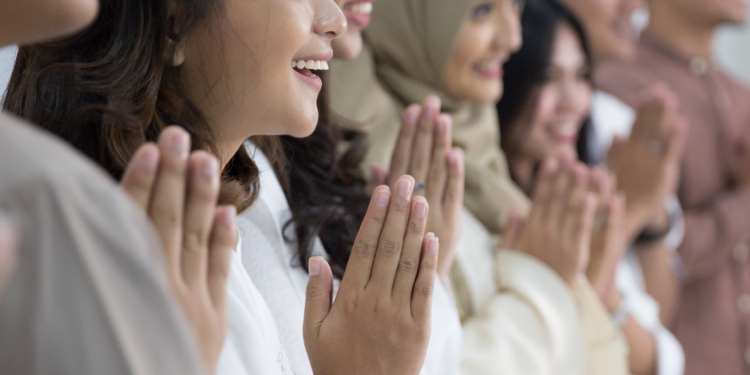
The Holy month of Ramadan started on the 7th of May. During this month, Muslims around the world fast from sunrise to sunset. Maybe you have just moved or are about to move to a Muslim country, and are not acquainted to the practices of the month of Ramadan just yet. Here are the basics of what you should and should not do during Ramadan.
Can I eat and drink?

Yes, you can. But depending on where you are, be careful. While Muslims do not usually mind that you eat and drink around them during the fast, in some countries you could be fined or jailed for eating and drinking in public during the fasting hours. Make sure you research the regulations in your host country. It is worth noting that this only applies to public spaces, however. You are allowed to eat and drink in private if you are not fasting.
If you do live in a Muslim-majority country but it is not illegal to eat and drink in public during the fast, your Muslim coworkers or friends will not mind that you eat around them as they believe it strengthens the sacrifice.
Things that you can and should ask…
If you have never experienced the Ramadan month before, you will probably have lots of questions and this is totally okay. Your peers will appreciate your interest in their culture and customs. You can and should ask about the significance of the month of Ramadan to people of the Muslim faith, or about the festivities at the end of the fasting period, for example. Make the most of this experience, ask questions, go along to events you are invited to but please, remain respectful and open-minded.
Things that you cannot and should not ask...
First of all, pregnant women, people with visible and invisible illnesses do not have to fast and they do not owe you an explanation. So, maybe don't go around asking people why they are not fasting as they would feel pressured to disclose something which might be personal.
“Not even water?”, “But aren't you hungry?”, “I should fast too so I could lose a bit of weight”... are questions that Muslims do get quite a lot. While your questions about the significance of the Holy month of Ramadan will be met with enthusiasm, it is useful to do some research before embarking on your cultural inquest. Muslims do not drink or eat during the fast. No, they do not drink water either. And yes, of course they are hungry but that's the whole point of the sacrifice. And, yes, it is very insensitive to compare fasting to a diet. Fasting is not about losing weight but about sacrifice.
Iftar

The Iftar is the meal with which Muslims break the fast at of the day. The time at which the fasting ends depends sunset and therefore, on where in the world you are. The iftar is a very special meal, it is often an occasion to share a meal with family, friends and the community. Chances are, you will be invited to participate in the iftar if you are living in a Muslim country. Do it! It would be an occasion to spend some precious time with your peers and discover their culture. You do not have to fast to be able to attend an iftar. However, if you do want to fast, it will be more than appreciated.
In professional settings…
Maybe do not schedule work lunches during the month of Ramadan. However, Muslim colleagues work as usual during the fast. They might take breaks for prayers and you should be respectful of prayer areas and prayer times. For example, be wary of those when scheduling meetings. Also, be flexible during the month of Ramadan. Especially at the beginning when one's body is not adapted to the fast yet, your practicing peers might be low on energy.



















